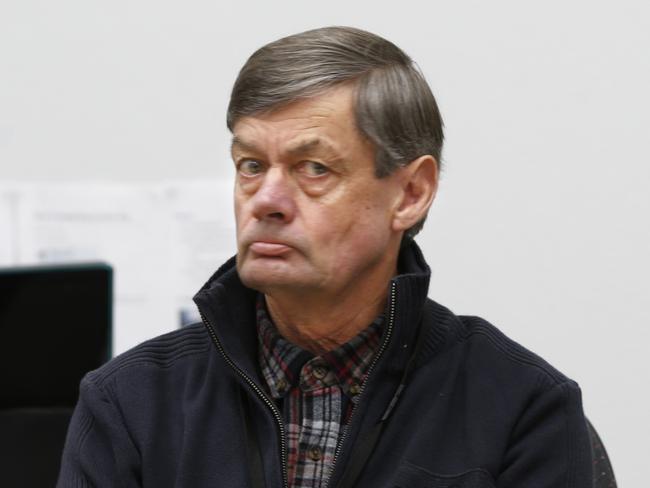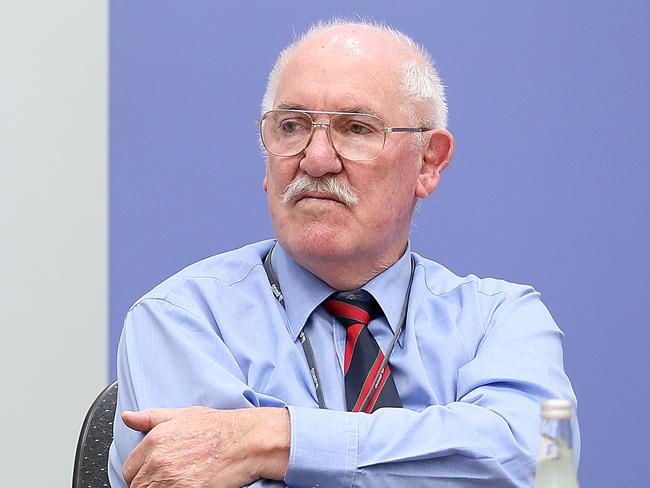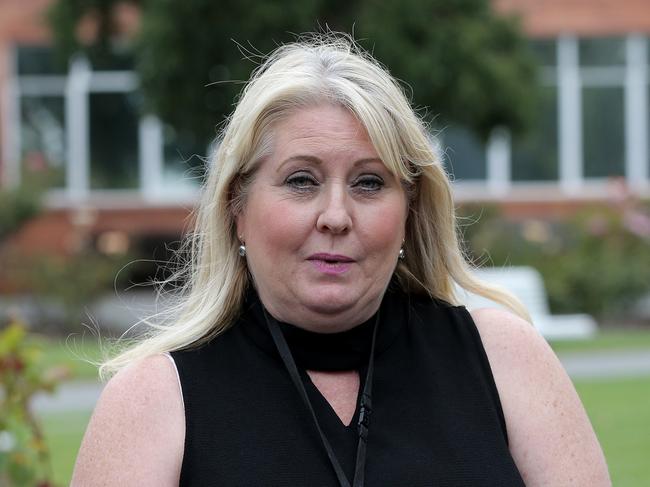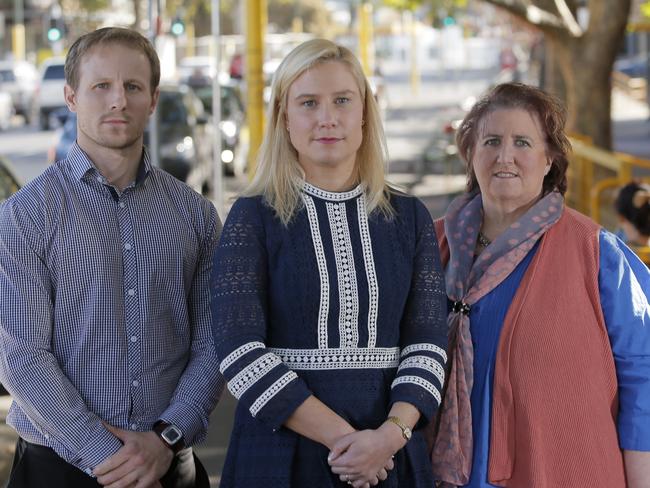Glenorchy aldermen put desire to bring down mayor ahead of community, Board of Inquiry report says
A FACTION of Glenorchy City Council aldermen opposed to mayor Kristie Johnston put their “intention to destabilise” her ahead of the interests of the community, the final Board of Inquiry report says.
Politics
Don't miss out on the headlines from Politics. Followed categories will be added to My News.
A FACTION of Glenorchy City Council aldermen opposed to mayor Kristie Johnston put their “intention to destabilise” and “denigrate” her ahead of the interests of the community, the final Board of Inquiry report says.
Tabled in State Parliament on Tuesday, the long-awaited and scathing report on the council said two groups of aldermen, one featuring Matt Stevenson and Jan Dunsby that was aligned with Ms Johnston, and another featuring former mayor Stuart Slade, Jenny Branch-Allen, David Pearce, Steven King, Haydyn Nielsen, Christine Lucas and later Harry Quick, who were opposed to her, formed as relationships soured.
MORE: GLENORCHY COUNCIL REPORT ‘SCATHING’


Board members Barry Easther and Lynn Mason said former general manager Peter Brooks and director of corporate governance and general counsel Seva Iskandarli — who the report said “exhibited barely restrained antagonism to the mayor in council meetings” — further inflamed the tensions.


“The resultant discord was exacerbated by partisanship displayed by the general manager towards the faction opposed by the mayor, and by the persistent provision of poor and/or inaccurate advice on governance and operational matters, particularly that provided by the director of corporate governance and general counsel,” the report said.
“A most damaging outcome of this fractionalisation of the council was that the majority of aldermen opposed regular and consistent monitoring of the organisation’s functions.”

MORE: GUTWEIN HINTS AT POSSIBLE COURT ACTION
The report listed examples of the campaign against Ms Johnston by the group of seven:
REMOVING the automatic election of the mayor to preside over the general manager’s performance review committee.
ACTING to ensure that her election to the Local Government Association of Tasmania’s general management committee was declared invalid, although Mr Quick did not participate in this.
CRITICISM of her questioning of Mr Brooks and Ms Iskandarli.
PERSISTENT challenging of her rulings when she was acting as the chairperson.

Ms Johnston was elected mayor with a resounding win in the October 2014 election, displacing the incumbent Mr Slade.
The board said from the start of the new council, there were attempts by some aldermen to undermine the office of the mayor and Ms Johnston.
“Challenges included interference with her capacity to facilitate communication by the council with the community, interference with her obligation to monitor the performance of the general manager, and overt challenges to her authority to act as the chairperson of the council in council meetings,” the report said.

Ms Johnston said they had been “resentful” in undermining the office of the mayor in that way. “It’s important that the community knows which aldermen did the wrong thing and which aldermen did the right thing,” she said.
“The report does say that the majority of seven has acted as one in trying to undermine the office of the mayor and to prevent transparency at the council.”


Mr Slade, who the report says was supported by the majority of aldermen in deciding that the general manager’s performance review committee would not meet until he had answers to questions he had of Ms Johnston in one instance, said the report and labels of factions was no more than a “political beat-up”.
“And showed what everyone knew anyway — a local council where individuals couldn’t get on with each other and there were some administrative and operational issues,” he said.
“If I am not mistaken, this occurs all the time in every tier of government, not just local government.”



